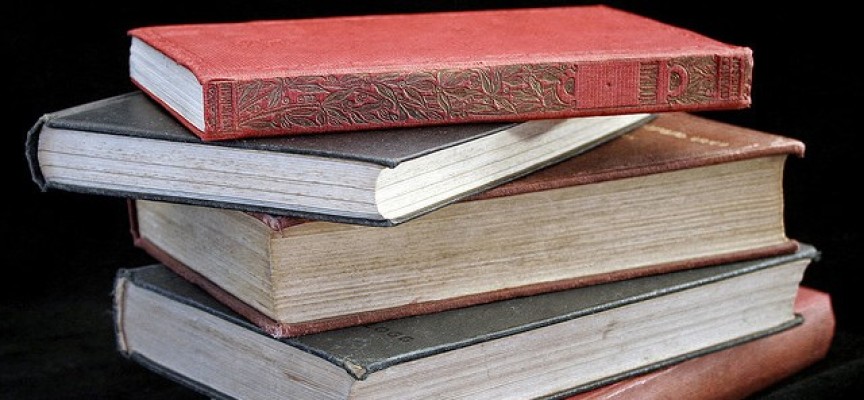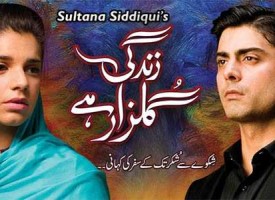This is not a list of ‘top 10’ or ‘must read’ books about Pakistan in the traditional sense. Rather, it’s a collection of titles that present a wide range of perspectives about a country that has a complex past and, to put it mildly, a confusing present. It covers topics that include everything from the history behind the creation of Pakistan, to the man who led the movement, to a critique of how our history is being presented today, to a glimpse into the future.
The Great Divide Britain–India–Pakistan; by H. V. Hodson
This book looks back at the final days of the Raj (British rule) up to the creation of Pakistan. The author discusses in great detail the events that led to the partition, how the power was transferred to the two nations and the aftermath of this history-altering event.
The Sole Spokesman: Jinnah, the Muslim League, and the Demand for Pakistan; by Ayesha Jalal
Although most historical accounts assert that the “two-nation theory” was the basis of the creation of Pakistan, there are opposing arguments as well. In her book, Ayesha Jalal refutes the conventional explanation about the creation of Pakistan. She shows how Muhammad Ali Jinnah negotiated with the British government and used the religion aspect as a strategic tool to protect the interests of the Muslims in India.
Jinnah: Creator of Pakistan, by Hector Bolitho
This is the first authoritative biography of Muhammad Ali Jinnah, which remained the only significant work for thirty years. In this book, Bolitho interviewed numerous contemporaries and colleagues of Mr. Jinnah and weaved this insight with the political and personal life of this great leader.
Jinnah of Pakistan, by Stanley Wolpert
Coming 30 years after Hector Bolitho’s ‘Jinnah: the Creator of Pakistan‘, this book takes a different approach. Up until this point, Jinnah’s depiction was quite misrepresented in most of the written works. Stanley Wolpert presents a balanced and objective view of this towering figure of the modern world politics.
Jinnah, Pakistan and Islamic identity: the Search for Saladin; by Akbar S. Ahmed
The primary characters involved in the partition of India include: Jinnah, Gandhi, Nehru and Lord Mountbatten. Among these four leaders, Jinnah has received a less than fair portrayal of his character, strategy and achievement. This influential study by Akbar S. Ahmed, counters the prevailing narratives and presents a more balanced and well-rounded picture.
Pakistan: A Modern History, by Ian Talbot
The populist view of Pakistan in the west is fairly stereotypical with fundamentalism, violence and absence of true democracy as the central themes. Ian Talbot presents a more refined understanding of Pakistan while breaking down the prevalent stereotypes. He argues that Pakistan is a complex region and is going through change and showing resilience against repeated dictatorial regimes and economic hardship.
The Idea of Pakistan, by Stephen P. Cohen
We constantly hear how Pakistan is a failed state, which is about to collapse. This book counters this popular argument and presents an alternate view point. The author touches upon various facets including foreign policy, the role of army, the role of Islam, economy, etc. Stephen Cohen also presents some possible scenarios about the future of Pakistan.
The Oxford Companion to Pakistani History Edited by Ayesha Jalal
Students of Pakistani history will find this work to be of great value as it encompasses objective information about a vast array of topics related to Pakistan. It begins with the pre-partition period and moves on to include the people, culture, architecture, economics, art, education and several other related subjects.
The Murder of History: A Critique of History Textbooks Used in Pakistan by K.K. Aziz
What we have come to know as the history of Pakistan, is it really like it is told? In this seminal work, K.K. Aziz keenly analyzed the history books used in our educational institutions. He highlights the historical inaccuracies in our text books and discussed its impact on the minds of the students.
New Perspectives on Pakistan Visions for the Future Edited, by Saeed Shafqat
The prevalent discourse about Pakistan is fairly similar across the board, the primary themes of which are failed state, fundamentalism and a gloomy future. But this collection of papers from various acclaimed authors tells otherwise based on research from multiple angles.
Do you see any substantial books missing from my “list”? I’m sure there are and I am counting on you to name a few. Please share your picks with us.
(Image Courtesy: Brenda Starr)








can you please share some books related to the history of Gilgit Baltistan please. admin
I need k.k azizs book “the murder of history”.How can i get this book..From where??do reply
from book center xd
If you wish to purchase this book ,it is available in amazon.com. if not to buy please try in some good libraries.
aoa, sir i am m.phil scholar of pakistan-studies from a public sector university.
sis , i want to take guidelines from you for selection of topic of their m.phil pakistan-studies thesis.
sir tell me please that which topic will be better for me?
because i need a lot of material on that topic which i select.
if you help me sir so please reply me.
best regards.
I have need the knowledge books.
Online books reading websites plzzzz…
Please suggest me the best book pertaining to the history of Pakistan with pre and post partition events. I want to buy it.
Regards
M.Aslam Malik
kuch books k name btaen jis mean pakistani culture acha define ho with writter name plzzzzzzzzzz
Are you have the soft copies of these books or some other essential historical books of Pakistan and united India. If have, please notify for our further guidelines.
I want to buy all these books.can you provide me in Daska (Sialkot)
I need K K Aziz’s book “The Murder of Histroy in Pakistan”.If anyone have it in soft form.or know from where to download it free please inform me
My e-mail address is : yasiransari2294@yahoo.com
Just a small feedback, The Idea of Pakistan, by Stephen P. Cohen is basically opposite to the description above. Its like a false machine trying to question the existence of this nation. Book seems to be discussing his personal perspectives and unlike its title, says relatively too less about the history and roots of the idea of Pakistan. Read it but do not believe everything.
Some books I can suggest are:
1) A History of the Idea of Pakistan by K.K. Aziz
2) The Making of Pakistan: A Study in Nationalism by K.K. Aziz
3) Jinnah vs. Gandhi By Roderick Matthews
4) Jinnah: India, Partition, Independence by Jaswant Singh
5) India Wins Freedom by Abul Kalam Azad
6) Crossed Swords: Pakistan, Its Army, and the Wars Within by Shuja Nawaz
to: Sikander.
Dear, i’m in need of K.K.Aziz’s “A History Of Idea Of Pakistan” (4 Vols).
If you can help, i will be much obliged.
Below is my email i.d.
eyeinsight4u@gmail.com
i’ll be waiting.
i want to have all these mentioned books.which one of booksellors can provide me these books readily at rawalpindi or islamabad.
i’ll add one more book to the list: Pakistan – A hard Country, by Anatol Lieven
a comprehensive analysis of the history, the culture, justice system, etc through contact with ordinary pakistanis.
I agree. This is a great book on Pakistan.
pakistan zinda bad